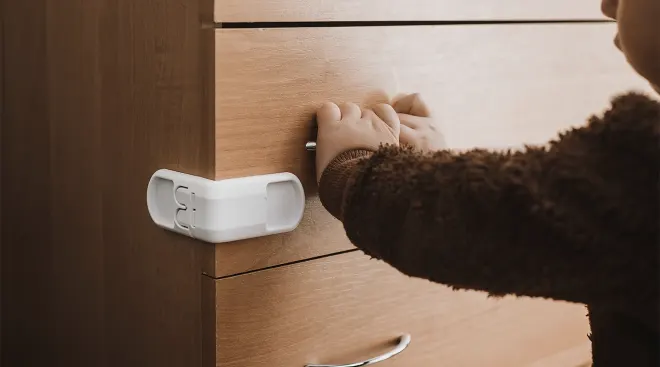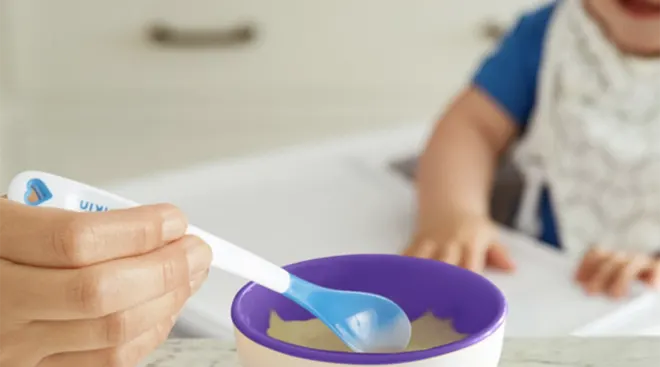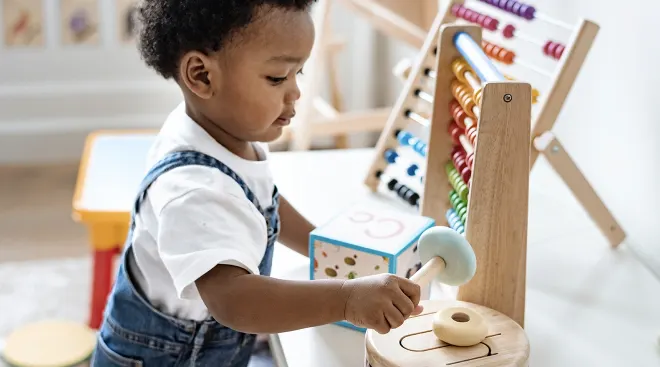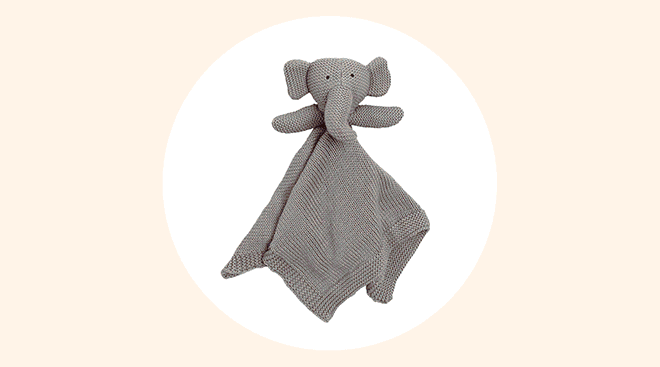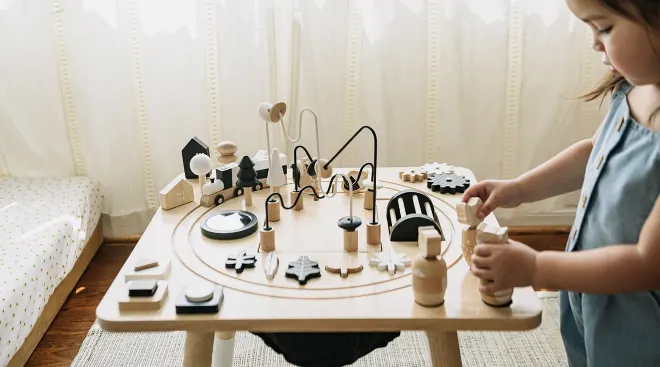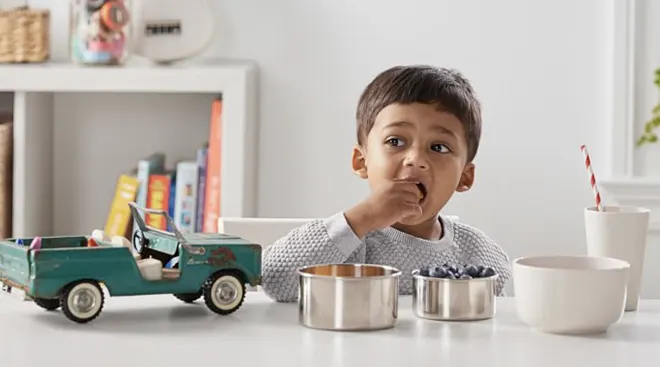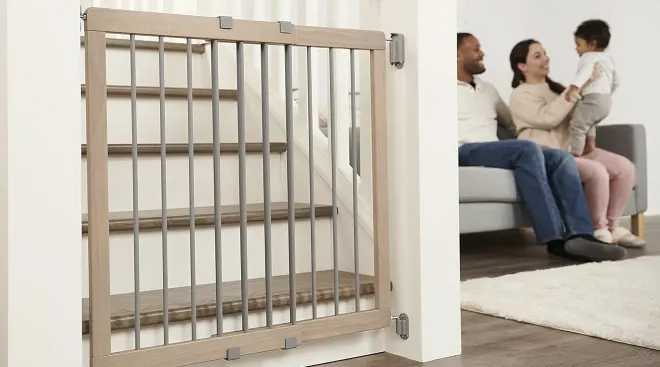11-Month-Old Baby

What a personality! Your 11-month-old baby’s individuality may have started to shine through, and now you’re probably seeing whether they tend to be more laid-back or if they’ve got some spunk. But keep in mind baby’s still developing and figuring out their likes and dislikes. They’re busy learning, observing (and testing!) and figuring out how to react to things they encounter. And, really, baby has probably displayed a variety of temperaments—such as shyness and independence—at different points in their development, not to mention on any given day! Give it some time, and baby’s personality will continue to evolve.
You’re one month shy of baby’s big birthday, and what an adventure it’s been! With nearly a year of parenting under your belt, you might be surprised by the constant concerns and questions you face (it’s natural to worry). So what should an 11-month-old sleep schedule look like, is there a typical 11-month-old feeding schedule to follow and are there daily activities to plan for? We’re here to help you navigate life with an 11-month baby. Read on for the full lowdown.
- Baby’s not technically a baby for much longer—at 12 months old, they’ll officially be considered a toddler. If you’re planning to have a first birthday party, now’s the time to send out your invitations. (And don’t worry, they’ll always be your little one!)
- Your independent baby might start standing without support—or while holding onto you—this month. The next step is their first step!
- If you’re still breastfeeding and considering weaning baby, don’t stress too much about this decision; look how far you made it! Each mom and baby is different, so take it slowly and do what feels right.
How much should an 11-month-old weigh and measure? The average weight for an 11-month-old baby is 19.2 pounds for girls and 20.8 pounds for boys. Average height is 28.7 inches for girls and 29.3 inches for boys.
Baby is probably growing about a half inch taller each month and putting on around three to five ounces per week, but as they become more mobile and active, their rate of growth might begin to slow down a bit. So you might find your 11-month-old baby is not gaining weight as quickly as they used to.
If you’re concerned about baby’s growth, have a chat with the pediatrician. Babies may experience growth spurts at different times compared to other babies, so everything might be just fine. But it’s always a good idea to get them checked out just in case.
When it comes to 11-month baby milestones, you’re probably asking yourself, what should my 11-month-old be doing? Remember, each baby is on their own journey, so try not to worry if they’re not keeping up with other babies in your parenting group. That said, most 11-month-olds are standing, cruising, scooting and exploring everything!
- Crawling. Baby is probably getting better and better at crawling. That’ll be their main mode of transportation—until the lightbulb moment (maybe a few months from now) when they realize that walking is faster! Don’t fret if they’re not crawling yet; just consult your pediatrician. Also, keep in mind that some babies skip this step altogether and go straight to walking on two feet.
- Cruising. Baby may begin to hold on to furniture as they walk around the room. Some especially daring babies may also let go. (Read: Standing!)
- Standing. Baby may stand without support or while holding your hands. Next step: Walking.
- Walking. While many babies won’t start walking until around 13 months or so, it’s not entirely uncommon for babies to start walking even earlier, so keep a watchful eye on your little mover and shaker. You could have a walker on your hands soon.
- Pointing. Baby can recognize objects and point to them when you ask them where they are. They may also point to turn your attention to something they find interesting!
- Talking. You’ve likely heard your 11-month-old baby start saying words like “mama” and “dada”—so what else should an 11-month-old be saying? Don’t overthink it—more words are likely on the way. By the time they’re one year old, many babies have one to three words under their belts.
11-month-old sensory development
- Baby can see pretty clearly, making out faces from about 20 feet away.
- Baby can easily watch objects as they move.
- Baby is listening closely—and now sound is integrated with their sense of sight. In other words, baby’s looking and listening at the same time, learning much more about what’s going on around them.
- Baby’s fingers seem to be drawn to trouble—they want to poke, prod and rip things! Here’s where some baby-safe finger paints or old magazines can come in handy.
“Temper tantrums are common when a child is learning to communicate. They can get frustrated in their learning. Be patient and repeat your requests when possible.” — Robert Quillin, MD, board-certified pediatrician and medical director at Pediatrix Medical Group in Fort Worth, Texas
As you near the one-year-old mark, you’re likely to have plenty of questions about baby’s health. Here are some topics you’ll want to know about when it comes to your 11-month-old baby:
Baby tummy troubles
As you’re introducing baby to new foods, issues like gas and reflux can arise—and are totally normal. If baby’s experiencing diarrhea or vomiting, it’s important to ensure they stay hydrated. If you suspect dehydration it’s important to call your pediatrician to determine next steps. Also make sure to call your pediatrician if baby’s poop is hard and pebbly, red, black, white, gray or clay-colored. If baby’s acting like they’re in pain with their legs pulled up or are crying usually and excessively that should prompt a call to the doctor. Finally, if tummy troubles are ongoing or are coupled with a fever, it’s important to reach out to your healthcare provider.
Hand, foot and mouth
Hand foot and mouth is a very contagious virus that can affect anyone, but it’s especially prevalent in young kids (if there’s an outbreak at daycare, it often spreads very quickly). Symptoms usually start to show up within three to six days after baby’s exposed and include sores in the mouth, fever, and a rash on the hands and feet. The rashes and sores can be very uncomfortable for little ones: You can give them Tylenol to help ease the discomfort (but check with your pediatrician first). If their symptoms persist or become unbearable, it’s important to take them to the doctor for an exam.
Baby allergies
Seasonal allergies to things like grass, pollen and ragweed don’t typically show up in young babies, as they tend to develop over time. Still, it’s not unheard of, so if you notice baby experiencing sniffling, a stuffy nose or watery eyes during allergy season, it’s worth giving the pediatrician a call to discuss how best to help your little one stay comfortable.
At this age, babies can show allergic symptoms to foods and medications, and possibly venom from insect stings. If baby’s allergic to a food, symptoms typically present relatively quickly after exposure (though it can take hours or even days) and may include sneezing, a runny or stuffed nose, itchy, red, watery eyes, wheezing or coughing, a red, itchy rash, tummy pain, diarrhea, or constipation, or worsening of asthma or eczema symptoms. If you notice baby showing symptoms of an allergic reaction, call your pediatrician immediately. In most cases, allergic reactions are mild, but anaphylactic shock can also happen and is considered a medical emergency. If you notice baby’s face or lips start to swell or they are having trouble breathing, call 911 or head to the closest emergency department.
Baby dry skin
If baby has dry skin, you can help by giving them shorter baths (no longer than 10 minutes) at a lukewarm temperature, since hot water can dry them out even more. Also, avoid bubble baths and foamy, scented soaps, and pat them dry with a cotton towel when they get out of the tub, rather than rubbing them. After the bath, apply a hypoallergenic, fragrance-free moisturizer while the skin is still somewhat damp to help trap in the moisture. You can also run a humidifier in their room to help make sure the air isn’t too dry.
In some cases, what looks like dry skin could actually be a skin condition called eczema. Eczema affects about 25 percent of the population, and 60 percent of those people first showed signs during their first year of life. When eczema flares up, you’ll see red, rough patches on your baby’s skin, and simply applying a regular lotion might not be enough to calm down the skin. If you suspect eczema, talk to your child’s pediatrician or a dermatologist to come up with a personalized skincare routine. In most cases, you can easily manage eczema with the right moisturizers.
Checkup and vaccines
If your little one’s up to date with their appointments, you can relax this month—your next pediatrician visit will be at the 12-month mark. And, since there’s no well-check this month, there aren’t any vaccines, either (if baby’s all caught up, of course).
As baby starts getting closer to their first birthday, continue to keep an eye on their development. By 12 months old, most babies will wave, pull up to stand, cruise, drink from an open (with an adult holding it), and look for hidden items—like a toy you hide behind your back.
While baby’s becoming a full-fledged eater of solid foods, breast milk or formula should still be their main source of nutrition. How much formula for an 11-month-old? About six to eight ounces about three to five times per day should do the trick.
If baby’s nursing, you can feed them about three to five times a day. Some moms think they need to stop breastfeeding around the one-year mark, but know that the benefits of breast milk extend into the toddler years. Plus, the American Academy of Pediatrics (AAP) recommends breastfeeding up to age 2, along with a variety of nutritious foods. That said, it’s a personal decision, so it’s important to do what feels right for you and baby.
As far as giving baby cow’s milk goes, pediatricians recommend waiting another month. Once baby’s officially one, their digestive system should be mature enough to handle regular cow’s milk. Stick to whole milk from at least age one to age 2, mixing it into baby’s regular formula or breast milk and slowly increasing amounts; this may help if baby doesn’t initially like the taste. If they love it, you can go straight to full cups or bottles of whole milk.
Baby’s super active now—which means they might suddenly become super active at night too. For an 11-month-old, sleep regression is not out of the question. Make every effort to get baby back on track by giving them a soothing bedtime routine and sticking to a regular bedtime. Earlier is almost always better! Speaking of bedtimes…
11-month-old sleep schedule
Your 11-month-old baby still likely sleeps about 13 to 14 hours total per day. About 10 to 11 of those hours are at night, and they’re probably taking two naps totaling about three hours of daytime sleep.
Your curious and playful 11-month-old baby now has a really active day! Many babies’ schedules look pretty different, but a typical 11-month-old’s daily routine might go something like this:
Eleven-month-olds will keep you on your toes all day. Settle down for some quiet activities that’ll keep them engaged and entertained. Here are some ideas:
- Play games. If you’re looking for things to do with an 11-month-old baby, play peekaboo with different variations. For example, hide behind a door or put a blanket over your head and let baby take it off.
- Music. Listen to music together and sing! This is a great way to help foster baby’s language development.
- Tactile toys. Offer toys that encourage baby to practice their eye-hand coordination, fine motor and cognitive skills, such as activity centers and sensory toys.
- Walking practice. Using push toys for a few minutes a day can help offer some stability and give baby more confidence on their own two feet as they work on learning to walk. (Note that a walking toy is not the same as a walker that baby is placed into; the AAP advises against the latter.)
There are lots of new things to know as you approach the one-year mark! Ahead, some of our tried-and-true tips for how to take care of baby and yourself at this exciting stage.
Postpartum recovery tips
- Don’t forget you’re still postpartum. Even at the 11-month-old stage, you’re still recovering from childbirth in some ways—so keep in mind it’s normal that your body is different from how it used to be. Keep working on strengthening your core, and pay attention to your pelvic floor (and don’t be afraid to seek guidance from a pelvic floor therapist if needed).
- Be mindful of your mental health. A parent’s mental health is closely connected to their child’s long-term health, so taking care of yourself has a positive impact on baby. If you’re struggling, whether it’s postpartum anxiety or postpartum depression, make sure to reach out to your provider sooner rather than later: Speaking with a professional can really pay off. That said, talking to a friend or family member can help too—chances are, they’ll be able to relate and you’ll feel less alone.
11-month-old baby care tips
- Weaning from the bottle. If you haven’t done so already, now’s the time to start transitioning baby from a bottle to a sippy cup or open cup. (The AAP says you should aim to make this transition between 12 and 18 months old.) It’s a good idea to do this gradually, allowing baby to continue to use the bottle at mealtimes, but dropping other feedings, like nap time or bedtime. Show your little one how to use the cup, and be sure to celebrate any time they use it. It is a big deal!
- Introducing an open cup. As you transition away from the bottle, offering baby the option of an open cup gives them an early start on a life skill. While sippy cups do have the benefit of avoiding potential messes, using an open cup helps strengthen hand-eye coordination.
- Using positive reinforcement for behavior. Instead of focusing on the negative when baby does something wrong (ahem, throwing food), practice positive reinforcement, which simply means acknowledging (or possibly even celebrating) when they do something right. You can give them a big smile, clap, offer a preferred toy, sing a favorite song, or even pick them up and dance around with them immediately after they do something “right.”
- Prepping for baby’s first birthday. As you gear up to celebrate baby’s first birthday, be sure to consider everything from where you plan to host the party (indoors vs. outdoors), how many people you plan to invite, and what types of food to offer (be sure to have kid-friendly options for your little one’s friends). Also, decide if you want the party to have a theme (and if so, what that theme will be), plan your decorations, order (or bake) baby’s cake, and consider whether or not you want to hand out party favors to guests. Finally, if you plan on hosting a big celebration, make sure you have cleared out some space in your home to store the many toys your toddler is sure to receive as gifts.
As you near the one-year mark, you’re much more of a parenting pro than you used to be—but things may also get more complicated. That’s why it’s always helpful to hear how other parents handle the 11-month-old stage (and commiserate, if needed!). Check out some stories you might relate to:
- Win: “This age was delightful (although, truthfully, they all are)—my son was happily eating solids instead of flinging them, and sleeping longer stretches than before (though still not through the night). His personality was also developing, and we learned that he’s quite the entertainer and comedian! At the same time, since he wasn’t walking yet things felt a bit less complex when we traveled or went out—he was still in the carrier or stroller.” — Natalie Gontcharova, Senior Editor, The Bump
- Challenge: “My 11-month-old baby is only napping at daycare once a day, and not for long periods. The other day, they recorded her nap for a total of 4 minutes! But for the most part, 10 to 15 minutes is the average. I just feel like that can't be good for her development. She's also super fussy and tired when she gets home. We don't get a chance to get much good bonding time because she's just inconsolable, and that has been making me really sad.” — mwelling103
- Wisdom: “There's zero need to throw a first birthday party. If you do, realize it's for you, not baby. Personally, I'd want a picture of baby with their first cake because it's adorable and something they may look at later. And if you want an excuse to have your friends over, then have a party and invite them. Don't bother inviting kids, unless it's your friends' kids, because at this age birthday parties are adult-centric rather than child-focused anyway. Baby has no idea what birthdays are at this point!” — 00kim00
“As your baby’s first birthday approaches, be sure to take a break from all of the smash-cake-baking and party planning to soak in how far you’ve come as a parent. This milestone is just as much a celebration of you as it is your baby.” — Kelley D., mom of two in Indiana
Frequently Asked Questions
When is baby considered a toddler?
At 11 months old, baby’s still a baby—but not for much longer. According to the AAP, the toddler stage starts at age 1 and lasts through age 3. Not to worry though, they’ll always be your baby. (Aww!)
Why is baby so fussy at 11 months old?
When baby’s between 8 and 12 months old, they go through some major social and emotional development, which can lead to fussiness. During this stage, baby may become more nervous and shy around strangers, begin experiencing separation anxiety, and as they get closer to 12 months old, they’ll become more assertive—and all of these things can translate into fussiness.
Can baby have peanut butter?
In most cases, there’s no issue giving your 11-month-old baby peanut butter (in fact, you can introduce it even earlier). Just remember to keep an eye on them for any signs of allergic reactions. Be sure to check with your pediatrician first, though: In some cases, they may recommend testing baby first (such as if they have allergy to eggs or a family history of food allergies).
Is bug spray safe to use around baby?
DEET-containing bug sprays are safe for babies as young as 2 months old, so using bug spray on yourself around an 11-month-old shouldn’t be a problem. Just make sure you’re applying the spray in a well-ventilated area and opt for a spray in a non-pressurized bottle. Of course, make sure to keep the bottle out of reach of baby.
Are rotating car seats a good option for 11-month-olds?
Depending on the brand, rotating car seats can be safe for babies weighing as little as 4 pounds and as much as 65 pounds. If your 11-month-old meets the height and weight requirement for a rotating car seat, then it’s a perfectly good option for your family. In fact, it may even make getting them in and out of the car easier, since they’re probably getting heavier and wigglier by the day. Keep in mind that baby should be in a rear-facing car seat for as long as possible, ideally until they’re 3 years old or outgrow the seat, advises the National Highway Traffic Safety Administration (NHTSA).
As they say, the days are long but the years are short. It might be a cliché, but it certainly rings true: It somehow feels like baby was born just yesterday (and also forever ago). Enjoy all the 11-month baby milestones in the coming days and weeks, and get ready to ring in one whole year together!
Please note: The Bump and the materials and information it contains are not intended to, and do not constitute, medical or other health advice or diagnosis and should not be used as such. You should always consult with a qualified physician or health professional about your specific circumstances.
Navigate forward to interact with the calendar and select a date. Press the question mark key to get the keyboard shortcuts for changing dates.
































